Biggest Heating & Cooling Energy Hog in your Home
Furnace Fan 101 & Lowering Your Electric Bills
How can you reduce energy costs without sacrificing comfort?
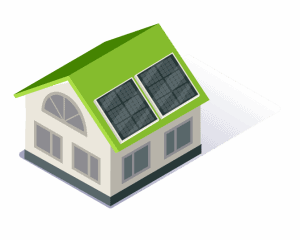
At Hanna Heating & Air Conditioning, we know how your home’s HVAC system impacts your energy use and utility bills. We help our customers understand their home’s energy issues. Learning exactly how your home’s heating and cooling system affects your energy use helps homeowners make informed choices on efficiency and energy costs.
Did you know that your home’s heating and air system uses nearly half of your home’s total energy? However, there are different types of energy, and some cost more than others.
Natural gas is a much cheaper energy source than electricity. That is a big reason why most people choose to have a gas furnace installed (this is especially the case here in ).
But even a gas furnace uses electricity.
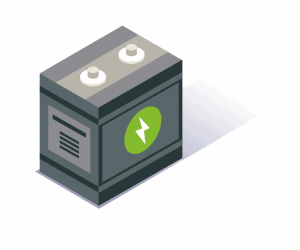
What’s more, that fan isn’t just used alongside your furnace to keep your home warm, it’s also needed for your air conditioner to cool your home.
 Furnace Fan: The Home Energy Hog
Furnace Fan: The Home Energy Hog
Your furnace fan, by itself, likely accounts for nearly 10% of all your home’s energy use. To put it into some perspective, that is twice as much electricity your refrigerator uses.
Your furnace fan is even more of an energy hog if you have an old and not very efficient furnace. They used to be much worse. That is why in 2014, the Department of Energy created the first set of efficiency standards for furnace fans (although it did not go into effect until 2019). This new furnace fan regulation was made to reduce their electric consumption by 50%.
Should My Fan Be Set to Auto or On?
You can control how often your furnace fan will run and use electricity with your thermostat.
- Fan on AUTO means the furnace fan only comes on when the HVAC system is actively heating or cooling air
- Fan set to ON means it is always running, even if your heater or AC isn’t.
Which setting is the best one? The answer isn’t the same for everyone.
Setting your fan to AUTO:
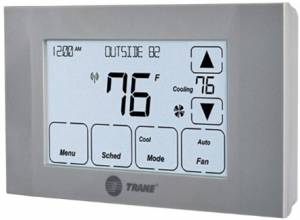
A fan set to AUTO does put less of a strain on your air filters, meaning you won’t have to change it as much as having the fan always on.
Setting your fan to ON
If comfort is your primary goal, this may be a good choice. Having the fan running continuously helps create a more even distribution of warm or cool air, which may reduce cold spots in your home in the winter. However, in the winter, having a fan set to ON may make you feel cold air from the vents if the fan is blowing without the furnace heating the air.
A fan set to ON reduces strain on the device by not having to stop and restart regularly. And that can help your furnace fan to last longer. But if you don’t have an efficient furnace, you will likely notice higher utility bills every month from it running all the time.
You should check your furnace’s manual. Different HVAC systems are designed differently. Some are not meant to have the fan constantly running, while others are designed to run non-stop.
Do you have an air filtration system or air purifier unit? If so, you should set the fan to ON to get the most out of those systems in improving your home’s indoor air quality.
If you are facing high energy bills, it may be time to upgrade your furnace. Some newer furnaces are so energy efficient that you can have your fan running constantly and still benefit from lower energy use and cost. This has to do with a furnace’s variable speed. A furnace’s variable speed of operation plays a big in how consistent and energy-efficient your home heating will be.
Call Hanna Heating & Air at (316) 945-3481 to learn how a new furnace can save you money and improve your comfort!
Reducing Your Energy Use
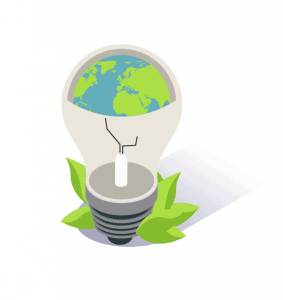
Using your home’s HVAC system less will lower your energy bill. That may sound simple, but it is not easy. You will be colder in the winter and hotter in the summer.
So instead of setting the thermostat and very uncomfortable temperatures, you can help your home’s system work better in different ways:
- Install ceiling fans
- Keep curtains closed in the summer
- Keep curtains open in the winter
- Keep your vents open and unblocked by furniture
While these tips can help you save energy, they may not make a tremendous impact on your bill. Fortunately, there are more ways you can conserve energy and help your furnace and AC run better and last longer.
Heating and Cooling Maintenance: An Unexpected Energy Saver
Doing regular maintenance on your home’s HVAC system isn’t just about making sure everything is working, but also working efficiently.
- Change your air filter. If it’s always very dirty when you change it, increase how often you change your filter. A clean air filter provides the best flow of conditioned air through your vents. A clogged or dirty filter puts unnecessary strain on your system. It will likely have to work harder and use more energy to get the air to the desired temperature.
- Get regular maintenance done. Your HVAC system has various components that can get dirty or worn. Detecting and fixing any problems early keeps your furnace and air conditioner working at peak efficiency.
Hanna Heating & Air Conditioning offers an annual VIP Maintenance Program. In case you have better things to spend your time on than furnace and AC maintenance, let our team of expert technicians handle all the home maintenance of your HVAC systems throughout the year.
Call us for more details at (316) 945-3481.


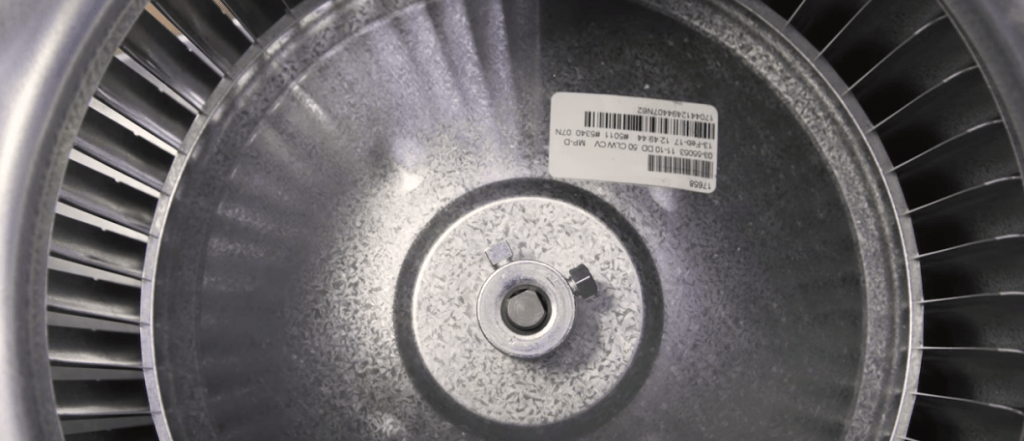 Furnace Fan: The Home Energy Hog
Furnace Fan: The Home Energy Hog

Add Comment